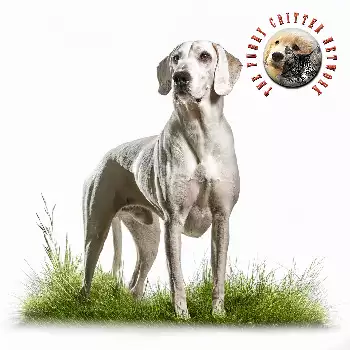The Balkanski Gonic is generally considered a healthy, robust breed with an average life expectancy of 12 to 15 years. This longevity reflects the breed's working heritage and the natural selection pressures that favored sound, healthy dogs capable of performing demanding physical work throughout their lives. However, like all breeds, the Balkanski Gonic can experience certain health issues that potential owners should understand.
Hip dysplasia represents one concern that may affect the breed, particularly in lines that have not been carefully monitored through responsible breeding practices. This developmental condition occurs when the hip joint forms improperly, leading to arthritis, pain, and mobility problems over time. Reputable breeders screen breeding stock through radiographic evaluation to reduce the incidence of this hereditary condition. Maintaining appropriate body weight and providing proper exercise throughout life helps minimize the impact of hip dysplasia should it occur.
Ear infections can arise in dogs with hanging ears if proper care is not maintained. The breed's medium-length ears that hang close to the head can trap moisture and debris, creating favorable conditions for bacterial or yeast overgrowth. Regular ear cleaning and inspection help prevent infections from developing. Signs of ear problems include head shaking, scratching at the ears, unusual odor, or discharge. Prompt veterinary attention for ear issues prevents minor problems from becoming chronic conditions.
Bloat, or gastric dilatation-volvulus, is a potentially life-threatening emergency that can affect medium to large breed dogs with deep chests. This condition occurs when the stomach fills with gas and potentially twists, cutting off blood flow. Feeding multiple smaller meals rather than one large meal daily, avoiding vigorous exercise immediately after eating, and using slow-feed bowls can help reduce risk. Owners should familiarize themselves with bloat symptoms and seek immediate emergency veterinary care if it occurs.
Weight management becomes increasingly important as these active dogs age or if they are neutered or spayed. Dogs that cease hunting work or experience reduced activity levels can easily gain excess weight. Obesity contributes to numerous health problems including joint stress, heart disease, and diabetes. Monitoring food intake and maintaining regular exercise throughout the dog's life helps prevent weight-related health issues.
Regular veterinary care forms the foundation of maintaining the Balkanski Gonic's health throughout their life. Annual wellness examinations allow veterinarians to detect potential problems early when treatment is most effective. These visits typically include physical examination, vaccination updates based on individual risk factors, and parasite prevention. As dogs enter their senior years around age seven or eight, more frequent checkups may be recommended.
Vaccinations protect against serious infectious diseases, though individual vaccination protocols should be discussed with a veterinarian based on the dog's lifestyle and geographic location. Core vaccines typically include protection against distemper, parvovirus, and rabies, while non-core vaccines may be recommended based on exposure risk.
Dental care significantly impacts overall health and should not be overlooked. Periodontal disease affects the majority of dogs over age three and can contribute to heart, kidney, and liver problems through bacteria entering the bloodstream. Regular tooth brushing combined with periodic professional dental cleaning under anesthesia helps maintain oral health throughout life.
Parasite prevention encompasses protection against fleas, ticks, heartworms, and intestinal parasites. Dogs that spend significant time outdoors, particularly those used for hunting, face increased exposure to these parasites. Year-round preventive medications provide the most effective protection, and specific products should be selected based on veterinary recommendation and regional parasite prevalence.
Blood work screening becomes increasingly valuable as dogs age, allowing detection of organ dysfunction, metabolic disorders, or other issues before clinical signs become apparent. Many veterinarians recommend baseline blood work during middle age with more frequent monitoring as dogs become senior citizens. Early detection of problems often allows for more successful management and can significantly impact quality of life.
Common Health Issues
- Hip dysplasia represents one concern that may affect the breed, particularly in lines that have not been carefully monitored through responsible breeding practices.
- Maintaining appropriate body weight and providing proper exercise throughout life helps minimize the impact of hip dysplasia should it occur.
- Obesity contributes to numerous health problems including joint stress, heart disease, and diabetes.
Preventive Care & Health Monitoring
- Maintaining appropriate body weight and providing proper exercise throughout life helps minimize the impact of hip dysplasia should it occur.
- Feeding multiple smaller meals rather than one large meal daily, avoiding vigorous exercise immediately after eating, and using slow-feed bowls can help reduce risk.
- Weight management becomes increasingly important as these active dogs age or if they are neutered or spayed.
- Monitoring food intake and maintaining regular exercise throughout the dog's life helps prevent weight-related health issues.
Regular veterinary check-ups and preventive care are essential for maintaining your Balkanski Gonic's health and longevity.

